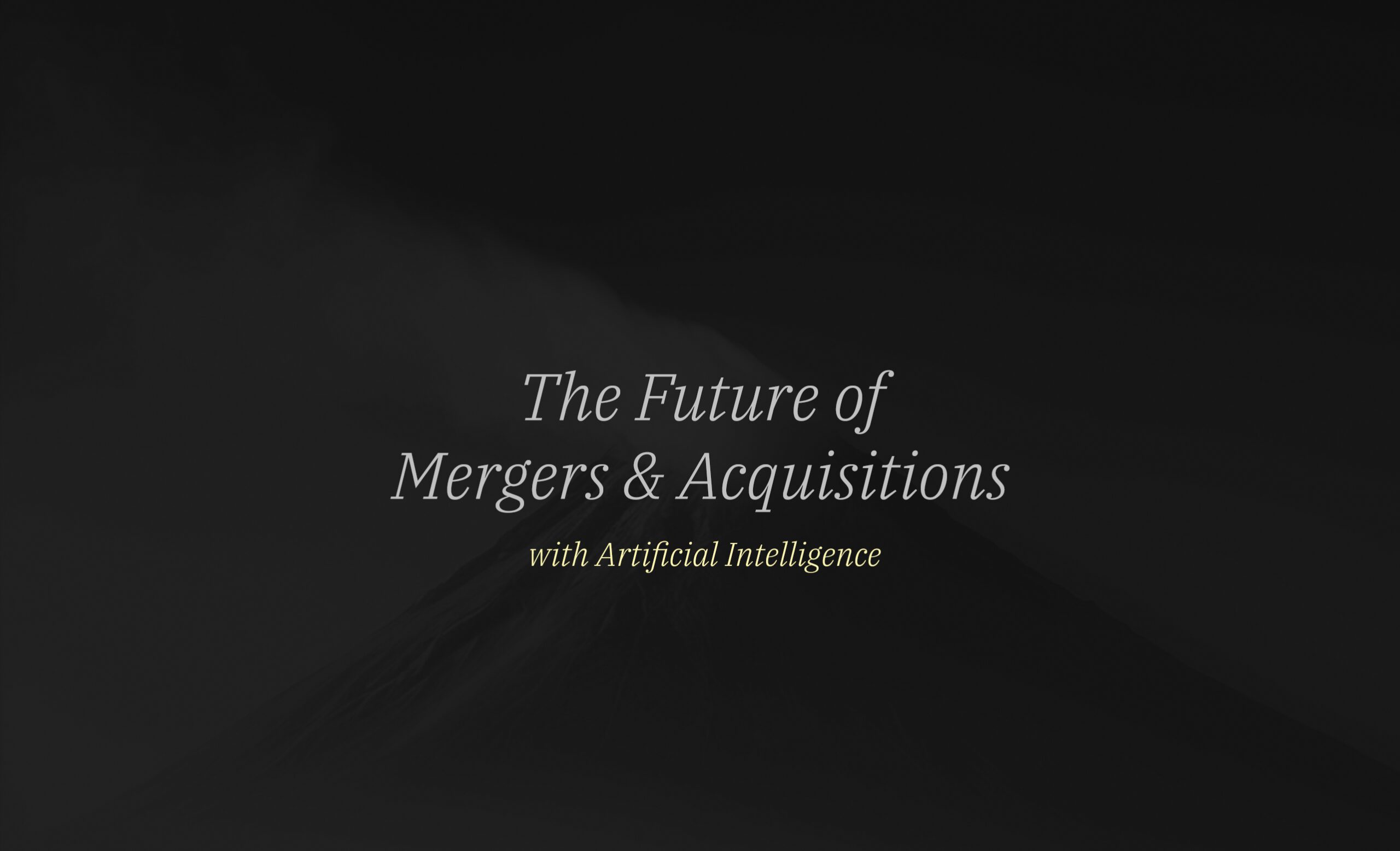Mergers and acquisitions (M&A) are a crucial part of business strategy for many organizations, and with the advent of Artificial Intelligence (AI), the way that organizations approach Mergers & Acquisitions is rapidly changing.
Artificial Intelligence has the potential to revolutionize the Mergers & Acquisitions process, making it faster, more efficient, and more effective. In this blog, we'll explore the use cases, benefits, and challenges of Artificial Intelligence in Mergers & Acquisitions, and provide insights into how organizations can leverage Artificial Intelligence to drive value from their Mergers & Acquisitions activities.
Use Cases of Artificial Intelligence in Mergers & Acquisitions
There are several key use cases for Artificial Intelligence in Mergers & Acquisitions, including:
- Due Diligence: Artificial Intelligence can significantly streamline the due diligence process, allowing organizations to quickly and accurately assess the potential risks and benefits of a potential M&A target. Artificial Intelligence algorithms can analyze financial data, customer feedback, and market trends to help organizations make informed decisions about their M&A activities. In fact, according to a survey by Accenture, 39% of executives believe that Artificial Intelligence will play a key role in due diligence processes in the future.
- Deal Structuring: Artificial Intelligence can also help organizations to structure Mergers & Acquisitions deals more effectively, negotiating better terms and closing deals more quickly. Artificial Intelligence algorithms can analyze market trends, customer feedback, and financial data to help organizations structure deals that create value for both parties. In a survey by Deloitte, 60% of executives said that Artificial Intelligence has the potential to improve the negotiation and deal-making process in M&A.
- Customer Insight: Artificial Intelligence can be used to analyze customer feedback and sentiment, allowing organizations to identify areas for improvement and to respond more effectively to customer needs. By using Artificial Intelligence to better understand their customers, organizations can increase customer loyalty, drive growth, and create value from their M&A activities. A survey by PwC found that 70% of executives believe that Artificial Intelligence will play a key role in improving customer experience in M&A.
Benefits of Artificial Intelligence in Mergers & Acquisitions
The use of Artificial Intelligence in Mergers & Acquisitions can bring several benefits to organizations, including:
- Improved Efficiency: Artificial Intelligence can help organizations to make more informed decisions, faster. By automating key processes such as due diligence and deal structuring, organizations can reduce the time and resources required to complete M&A transactions. According to a report by EY, organizations that use Artificial Intelligence in M&A can reduce deal cycle time by up to 20%.
- Better Data Analysis: Artificial Intelligence algorithms can analyze large amounts of data, including financial data, customer feedback, and market trends, allowing organizations to make more informed decisions about their M&A activities. This can help organizations to identify risks and opportunities that they may have missed without the use of AI. In a survey by McKinsey, 60% of executives believe that Artificial Intelligence has the potential to improve data analysis and decision-making in M&A.
- Increased Customer Insight: Artificial Intelligence can be used to analyze customer feedback and sentiment, allowing organizations to identify areas for improvement and to respond more effectively to customer needs. By using Artificial Intelligence to better understand their customers, organizations can increase customer loyalty, drive growth, and create value from their M&A activities. According to a report by Forrester, organizations that use Artificial Intelligence to analyze customer feedback can improve customer satisfaction by up to 15%.
Challenges of Artificial Intelligence in Mergers & Acquisitions
Despite the potential benefits of Artificial Intelligence in M&A, there are also several challenges that organizations must overcome in order to successfully implement Artificial Intelligence in their M&A activities, including:
- Data Quality: In order for Artificial Intelligence algorithms to provide accurate and reliable insights, organizations must have high-quality data. Poor quality data can result in incorrect or biased results, and can negatively impact the decision-making process in M&A. Organizations must ensure that their data is accurate, complete, and up-to-date in order to get the most value from Artificial Intelligence in M&A.
- Regulation: The use of Artificial Intelligence in M&A is subject to a range of regulations, including privacy, data protection, and anti-competition laws. Organizations must ensure that their Artificial Intelligence systems are compliant with all relevant regulations, and that they are transparent about the use of Artificial Intelligence in their M&A activities.
- Ethical Considerations: The use of Artificial Intelligence in M&A raises a number of ethical considerations, including the potential for Artificial Intelligence algorithms to perpetuate bias and discrimination. Organizations must ensure that their Artificial Intelligence systems are ethical and unbiased, and that they are transparent about how Artificial Intelligence algorithms are being used in M&A.
- Integration: Integrating Artificial Intelligence into existing M&A processes can be challenging, and organizations must ensure that their Artificial Intelligence systems are compatible with existing systems and processes. Organizations must also invest in training and support for their employees to help them effectively integrate Artificial Intelligence into their M&A activities.
Conclusion
The use of Artificial Intelligence in Mergers & Acquisitions is rapidly gaining momentum, and has the potential to revolutionize the way that organizations approach M&A. By leveraging Artificial Intelligence to streamline due diligence, structure deals more effectively, and improve customer insight, organizations can drive value from their M&A activities.
However, organizations must also overcome the challenges of implementing Artificial Intelligence in Mergers & Acquisitions, including data quality, regulation, ethical considerations, and integration. By successfully navigating these challenges, organizations can unlock the full potential of Artificial Intelligence in M&A and drive value for their business.



No comments.